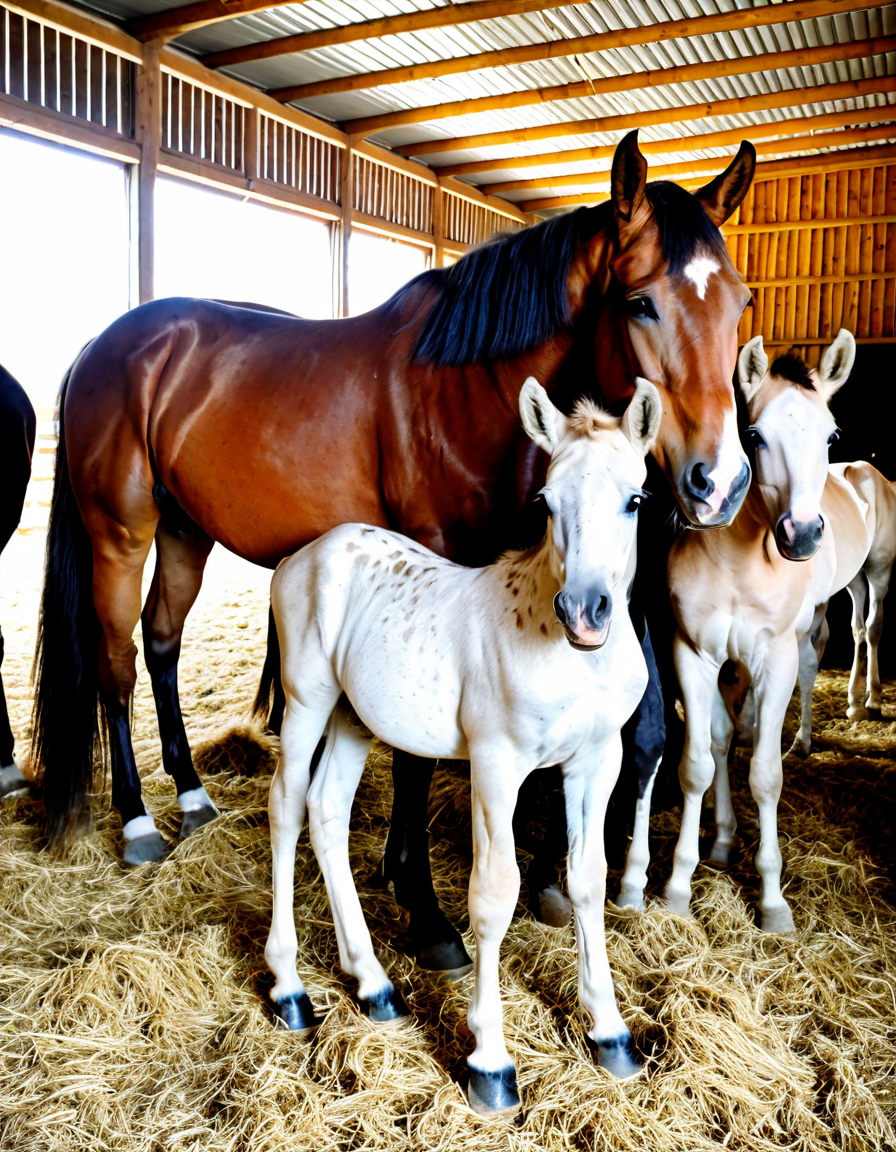Understanding the average weight of a horse is crucial for both new and experienced horse owners. On average, horses weigh between 900 to 2,200 pounds, depending on factors like breed, age, and health. This broad range can be surprising but makes a difference in how we think about their care and management. Whether you’re a lifelong equestrian or just starting to learn about horse ownership, knowing the weight of the average horse can set the stage for better decisions regarding health, feeding, and exercise.
Understanding the Average Weight of a Horse
When considering the average weight of a horse, it’s essential to look beyond mere numbers. Generally speaking, horses can be categorized into three weight classes: light, medium, and heavy. Light horses usually weigh between 900 and 1,200 pounds, while medium horses, like the popular Quarter Horse, often range between 1,200 and 1,500 pounds. Heavy horses, often draft breeds like Clydesdales, can tip the scales at upwards of 2,200 pounds. Understanding this classification helps owners make informed choices for their specific horses.
The term “average” reflects a statistical midpoint, but factors such as breed and health status can cause significant variations. For example, a healthy Thoroughbred will often weigh between 1,000 and 1,200 pounds, while a more robust Clydesdale will fall into the heavier categories. This understanding of averages not only assists in feeding and care but also lays the groundwork for recognizing any ongoing health issues.
Equine weight isn’t static; it can fluctuate based on various lifestyle factors like diet and exercise. Being aware of the average horse weight aids in establishing benchmarks for your horse’s health. Keeping a close eye on these changes allows owners to intervene before minor issues turn into major concerns.

Top 7 Factors Influencing the Average Weight of a Horse
1. Breed
The breed of a horse plays a vital role in determining its weight. For instance, a Scottish Clydesdale averages between 1,800 and 2,200 pounds, while an Arabian horse generally weighs between 800 and 1,200 pounds. This breed-specific weight variation is crucial for understanding the diverse spectrum of horse owners choose from.
2. Age
Age is another critical factor. Foals typically weigh around 100 pounds at birth and grow rapidly in their formative years. By the time they reach 2-4 years old, they usually achieve their adult weight. Keep in mind that older horses might lose weight due to health issues, which can give the impression they’re lighter than the average weight of a horse.
3. Gender
Gender significantly influences a horse’s weight as well. Stallions and geldings usually weigh more than mares of the same breed—studies show they can be up to 15% heavier. When assessing the weight of the average horse, this gender distinction must be taken into account.
4. Body Condition Score (BCS)
The Body Condition Score effectively measures how a horse’s weight compares to its overall health. A horse scoring between 5 and 7 is generally considered to be in good condition. This score can greatly change the perception of the average horse weight, offering valuable insight into health management.
5. Diet and Nutrition
Good nutrition is essential for maintaining a healthy weight. Horses fed high-quality hay and grains typically weigh more than those on stripped-down diets. Brands like Purina or Triple Crown can provide the essential nutrients your horse needs to thrive, contributing directly to their weight.
6. Activity Level
The activity level of a horse also affects its weight. Sport and competition horses often maintain a more toned physique than those that are primarily used for labor or companions. Horses that are athletic usually need fewer calories, while less active horses may gain weight more easily due to an increase in body fat.
7. Health and Medical Conditions
A horse’s health status can lead to significant weight fluctuations. Conditions like equine metabolic syndrome can cause a horse to be overweight, while ailments like colic can lead to substantial weight loss. Ensuring regular veterinary check-ups will help you monitor any changes in weight due to health conditions.
Average Weight of a Horse: Breed-Specific Examples
To truly grasp the diversity in weight, let’s delve into breed-specific examples:
These comparisons will help horse owners determine what the average horse weight is in their backyard, tailoring care according to their horse’s needs.

Keeping Track of Weight Changes Over Time
Monitoring your horse’s weight is vital. Regular weigh-ins using a weight tape can help detect patterns over time, allowing adjustments to be made as needed. Record-keeping is key; whether you’re logging numbers on paper or using a digital platform, keep track of your horse’s progression.
There are even weight monitoring apps available to assist owners in tracking their equine’s weight effectively. By noting changes, you can make informed decisions regarding diet and exercise, ensuring a healthy and happy horse.
Innovative Insights for Horse Owners
Caring for a horse involves understanding weight dynamics and adjusting to its unique needs. One approach gaining popularity is individualized feeding plans tailored to each horse’s specific lifestyle and health status. This approach goes beyond cookie-cutter diets, emphasizing the importance of personalized nutrition.
Additionally, utilizing non-invasive methods for tracking weight can further ease the ownership experience. Think of innovative tech like weight monitoring apps that provide real-time insights into your horse’s health. This empowers owners to make proactive adjustments, enhancing their horse’s quality of life.
In the grand scheme of things, knowing the average weight of a horse is just the beginning. Understanding individual weight nuances fosters a healthier and happier animal—one that can perform at its best and live a fulfilling life.
By maintaining a keen awareness of these weight factors, owners can ensure their equine companions lead long, happy lives. With thoughtful management, you’re not just tracking today’s numbers, but investing in tomorrow’s health.
Don’t forget, learning is a forever journey. Whether you’re engaging with your horse or reading up on related topics like royal python feeding chart or exploring the adventurous lives of glow Horses, there’s always more to uncover. Happy riding!
Average Weight of a Horse: What You Need to Know
When you think about the average weight of a horse, it varies quite a bit depending on the breed. Most horses typically weigh between 900 to 2,200 pounds, with larger breeds like Shires or Clydesdales tipping the scales at the higher end. That’s equal to around 408 to 998 kg; who would’ve thought a heavyweight like that could gallop with such grace? Transitioning from the heft of horses to the tiny tiny tiny tiny Puppies can be a delightful shock. These little furballs often weigh just a few pounds! It’s fascinating how size plays a role in their weight and care.
Now, let’s spice things up with some interesting tidbits. Did you know that horses can sleep both lying down and standing up? That’s right! It’s all about their prey instincts. If a horse feels threatened, it can dart away in seconds. Speaking of instincts, have you ever seen a horse that completely takes your breath away? Some breeds are so unique, they might remind you of what you’d find in a colorful documentary by folks like Will Masterson. Just like those films, the variety among horse breeds keeps things lively and captivating.
As we dive deeper, it’s fascinating to note that the average weight of a horse can determine aspects of its health and performance. For example, heavier horses might be better suited for draft work, while lighter ones excel in speed events. And much like kiwi vine, which needs the right conditions to thrive, a horse’s weight must be managed for optimal health. Just as you wouldn’t want to feed a tiny puppy the same portion as a hefty horse, each animal has its specific needs. It’s all interconnected, and understanding these nuances can be key to being a great pet owner—whether you’re wrangling horses or admiring the chic almas on Chicas Calientes.
So, next time you’re out at a ranch or a stable, take a moment to appreciate these magnificent animals. The average weight of a horse is just one piece of the puzzle that makes them so intriguing. Whether you’re learning about their care or simply enjoying their beauty, every bit of knowledge counts. Who knows, you might find yourself immersed in conversations about Ali Gs antics or discover how just a bit of extra knowledge can make you a more informed equestrian!






